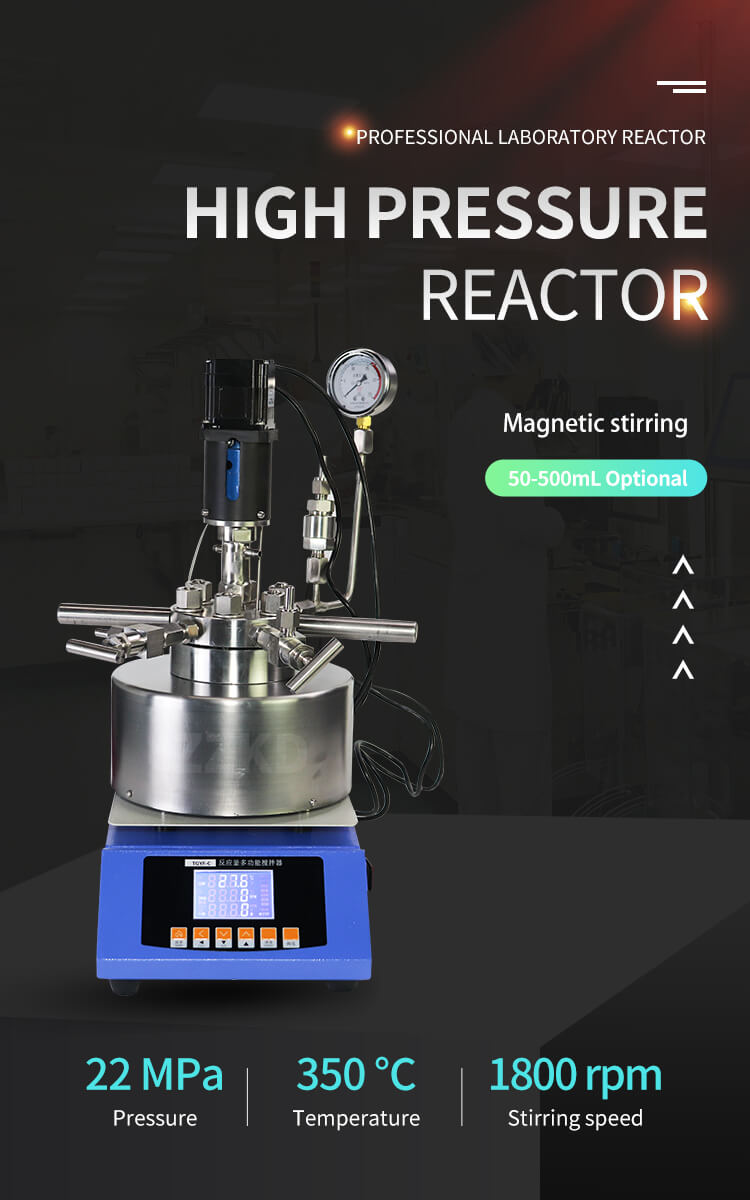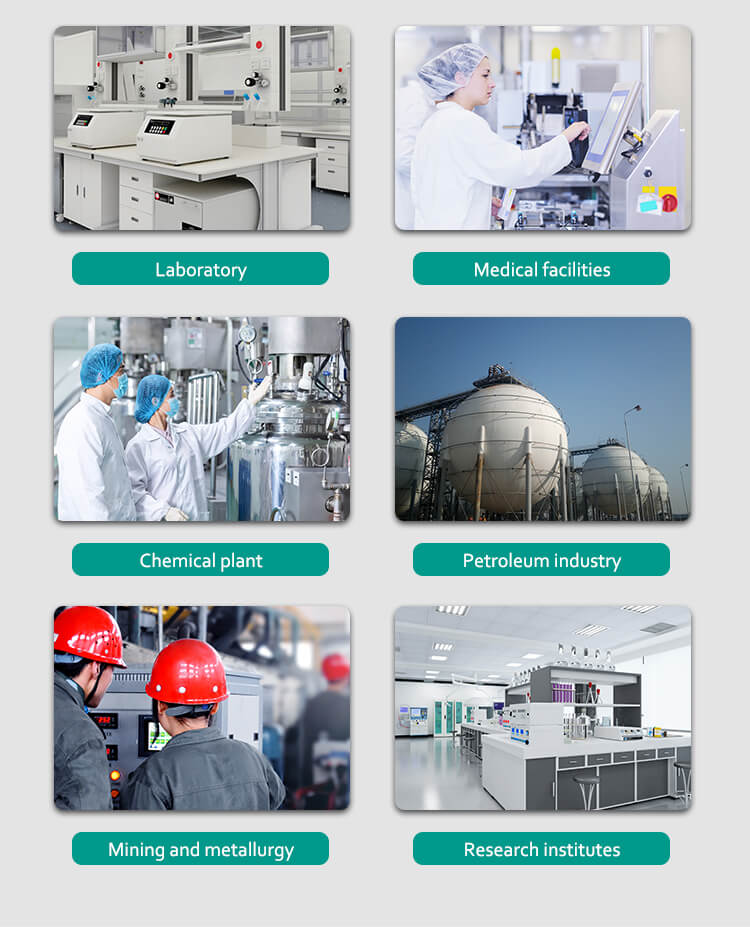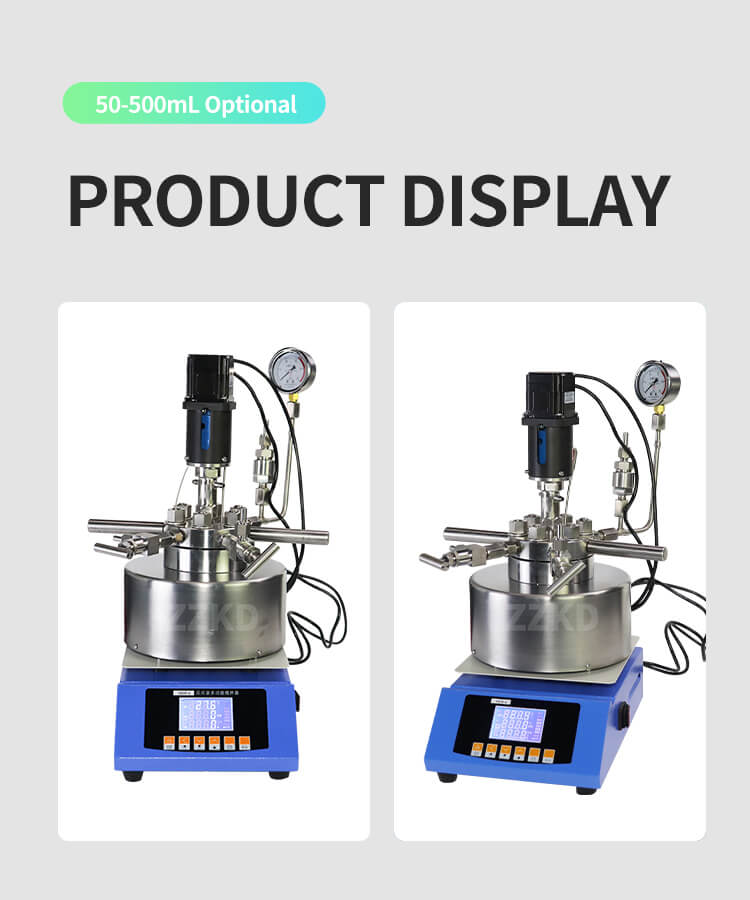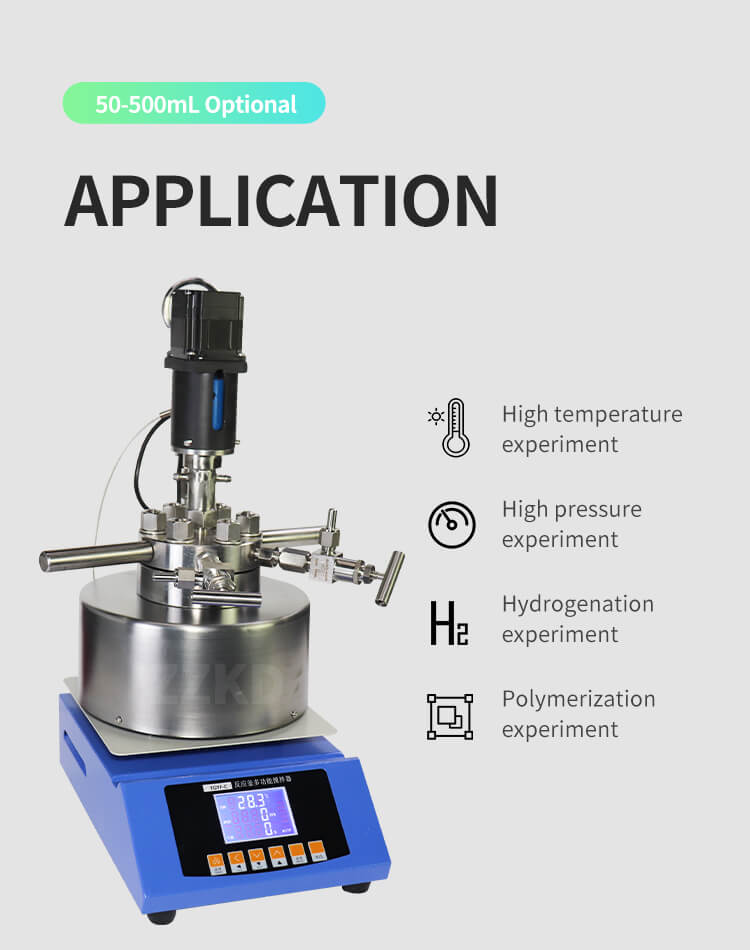A high pressure hydrogenation reactor is a crucial tool in the field of chemistry, especially in the realm of industrial and scientific research. It allows scientists and engineers to carry out hydrogenation reactions under high pressure conditions, enabling the synthesis or transformation of complex molecules and materials.

Hydrogenation is a chemical process that involves the addition of hydrogen to a molecule or material. This reaction has widespread applications in various industries, ranging from pharmaceuticals to petrochemicals, due to its ability to modify the properties of substances to achieve desired qualities.
The high pressure hydrogenation reactor typically consists of a sturdy metal vessel capable of withstanding high pressures. It is designed to safely contain and control the reaction conditions during hydrogenation. The reactor is equipped with an inlet for hydrogen gas, as well as temperature and pressure monitoring systems for precise control.

One of the primary advantages of high-pressure hydrogenation reactors is their ability to enhance reaction rates and selectivity. By increasing the pressure, the solubility of hydrogen in the reactant solution is improved, leading to more efficient and faster hydrogenation reactions. Additionally, elevated pressures can influence the reaction thermodynamics and favor certain products, contributing to higher selectivity.

These reactors also allow for the use of heterogeneous catalysts, which are typically more active under high-pressure conditions. Heterogeneous catalysts are substances that accelerate chemical reactions without being consumed in the process, making them ideal for efficient and cost-effective industrial applications.

Applications of high pressure hydrogenation reactors are numerous. They are commonly used in the production of fine chemicals, such as pharmaceutical intermediates, fine fragrances, and specialty polymers. Furthermore, these reactors play a vital role in the development of renewable energy solutions, specifically in hydrogenation processes related to hydrogen fuel production and storage.
In summary, high pressure hydrogenation reactors serve as powerful tools in the realm of chemistry, enabling scientists and engineers to unlock new possibilities in the synthesis and modification of important compounds. The ability to carry out hydrogenation reactions under elevated pressures provides enhanced control, efficiency, and selectivity, making these reactors indispensable in various scientific and industrial fields.





